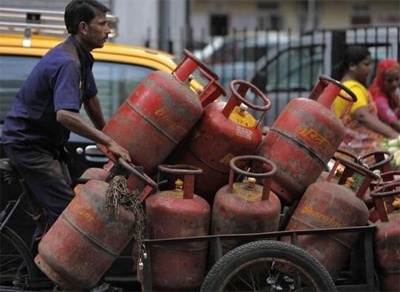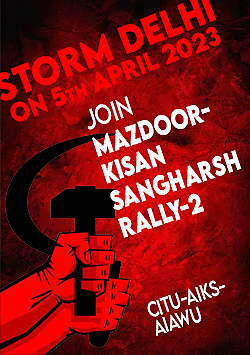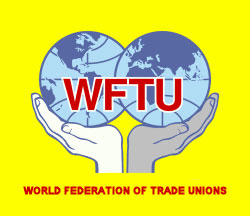23rd June 2014
Dear Shri Narendra Modi Ji,
It is learnt from the press report that the Govt is considering increase in price of natural gas based on the exercises made in that regard by the previous Govt. In this regard, I would like to bring to your notice certain facts and request you to exercise due diligence in the matter before taking any decision.
I had written several letters to your predecessor Prime Minister as well requesting not to allow such exercise of such huge price hike of natural gas based on a tailor-made formulae just to facilitate windfall gains for the contractor/s handling natural as well national resources. Natural gas is being produced domestically and must be priced based on cost plus reasonable returns on investment. Any other methodology of pricing having no relevance with the cost of production in the name of “market-determined” or “arm’s length basis”, tailor-made to benefit the contractor is bound to have perverse impact on the economy as well as people at large. I request to please consider this aspect seriously.
During the UPA-II regime, the power and fertilizer ministries vehemently opposed the whole exercise for increasing the price of natural gas based on Rangarajan Committee recommendation on valid grounds. They highlighted the huge subsidy burden on the Govt as a result of the proposed doubling of the gas price(from $4.2 to $8.4) as per the new formulae. The fertiliser ministry estimated that the additional subsidy requirement would be Rs.14,500 crore per annum from 2013-14 to 2016-17 and Rs. 19,000 crore from 2017-18 onwards (assuming Rs 60=1$ and increase from $4.2 to $8.4 per mmbtu). Similarly, the power ministry estimated that the impact would be Rs. 29,800 crore per annum, based on the requirement of existing plants and Rs. 46,360 crores, if one considered the capacity under construction as well. Thus the increased requirement of subsidy annually would be Rs. 44,860 crores on a conservative basis and Rs. 66,360 crores if all the new plants were commissioned. It should be noted that these numbers were mentioned in the Cabinet note itself.
And while the burden on the Govt and therefore on the people will increase phenomenally owing to the proposed doubling of the natural gas price, the contractor’s profit will also increase in a big way thereby making the whole exercise for pricing- a mechanism for a transfer from public to private kitty. If we assume a very modest production of only 50 mmscmd, against the required production figure of 80 mmscmd, the calculations show that the proposed increase in gas-price from $4.2 per mmbtu ($1=Rs60) will lead to an additional revenue of RIL to the tune of Rs18000 crore in one year or Rs90000 crore over a period of five years.
Is there any justification for such open loot of the country's natural resources by a private company? This additional profit will of course be obtained from the end users of gas, ie, users of fertilisers (i.e. the farmers of the country) and power consumers ( i.e. the common people of the country).
There has been an attempt to obfuscate the issue by projecting that the price increase would benefit the PSUs more than Reliance. This argument needs to be effectively rejected. There is no justification of benefitting even PSUs out of the way simultaneously imposing huge additional avoidable burden on the public exchequer. Moreover, ONGC and OIL are PSUs with a majority share of the government which also shoulders a part of the Govt’s burden on fuel subsidy. In fact there is a clear precedent for the same. Both ONGC and OIL are part of the revenue sharing arrangement to finance the fuel subsidy of the government. Thus even though crude prices of $110 per barrel are paid to both ONGC and OIL, these are only notional payments. The Government then takes a discount on prices, which is credited back to the government, from both these companies to fund the fuel subsidy for diesel, kerosene and LPG. After the discount, the prices that these companies actually get is in the order of $50-60 per barrel depending on their exact share. It is eminently plausible that the government will do the same for both its PSUs in respect of gas prices as well to fund the increased burden of subsidy.
Will RIL also be willing to hand over its humungous profits as a result of the price increase towards meeting the enhanced subsidy bill? Will the government levy a windfall tax on RIL to recover these super profits? If these steps are not possible, it is a complete fallacy to compare the situation of the PSUs to RIL.
I would also like to draw your attention to the unanimous recommendation of the Parliamentary Standing Committee on Finance headed by Shri Yashwant Sinha, former MP representing BJP.
The important portions are produced below:
"The Committee believes that natural gas is a national resource and a public asset; and therefore any discourse on its pricing policy should reflect this principle so that it is used for the larger national good and not for profiteering."
"In the present economic situation with rampant inflation and a slowdown of the economy, any increase in gas prices will have a derailing effect on the economy generally and the downstream core sectors of fertilizer, power and steel, in particular."
"A scientific cost study in the gas basins warranting / justifying a higher price. It cannot be a mechanism only leading to windfall super-normal profits to entities, thereby putting the cost of private profit on society."
"The Committee are constrained to note that no due diligence was done before arriving at the decision to revise gas price. Neither was any cost or impact study done in this regard."
"In the light of the concerns enunciated above, the Committee would strongly recommend the Government to review forthwith its decision to raise gas prices and come out with fresh pricing which is more balanced and holistic and closely related to the audited cost of production and a reasonable return on the capital invested."
The Parliamentary Standing Committee on Petroleum & Natural Gas also recommended unanimously inter alia that, “ …the Rangarajan Committee formula for arriving at natural gas price should be thoroughly reviewed and reconsidered. The Committee recommend for factoring domestic cost of production of gas for arriving at the price and fixation of price of gas in rupee terms in PSC under NELP regime.”
As you would kindly note that both the Parliamentary Committees have given an unequivocal report for reviewing the decision to increase gas prices and rejected the Rangarajan committee formula. I hope that this will also receive due consideration by you.
An impression was also sought to be created by the previous government that the price formula was fixed by a committee of experts led by Dr Rangarajan and could not therefore be questioned. But the very composition of the Committee itself evokes certain inescapable questions involving conflict of interest vis-à-vis the task undertaken. It is reported that one member of the Rangarajan Committee, is an associate of the Observer Research Foundation, a think tank funded by Reliance. Is this ethical? On this ground as well the matter needs fresh consideration by your government.
We would earnestly request you to take a fair and balanced view in the matter and protect national interest by ordering a thorough review of the proposed increase in natural gas prices.
With regards,
Yours sincerely,
(TAPAN SEN )
Shri Narendra Modi,
Prime Minister of India
South Block, New Delhi - 110001.
Copy to Shri Arun Jaitley, Finance Minister, Govt of India
Copy to Shri Dharmendra Pradhan, Minister of Petroleum & Natural Gas, Govt of India



